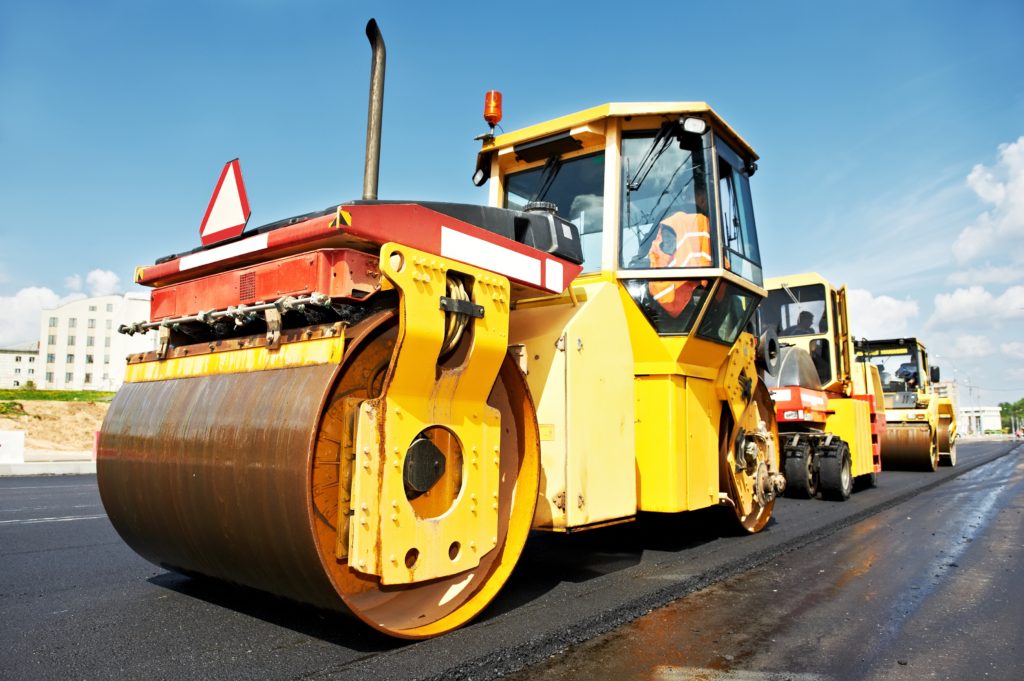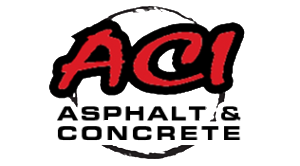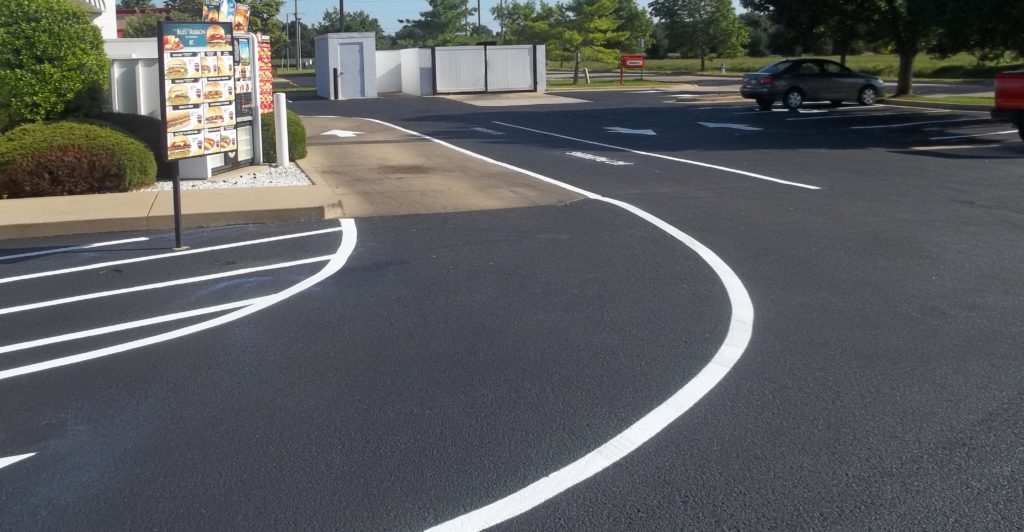Every professional paver understands the importance of pavement preventative maintenance. In order to maintain aesthetically-pleasing pavement that lasts, certain measures must be applied. One of the most common and effective methods for extending the life of asphalt pavement is sealcoating. But many property owners have several questions regarding the sealcoating process and more.
Continue reading to review some of the most frequently asked questions about pavement sealcoating, as well as, their answers!
Top Seal Coating Questions and Answers
Why Should Two Coats of Seal Coat Be Applied When a Single Coat Looks Good Enough?
The reason why professional pavement contractors apply more than one layer of sealcoat is to promote stability, durability, and longevity. The look of your commercial pavement is just one small aspect of proper pavement installation and maintenance. Beyond appearances, your pavement needs to be strong and long-lasting, and two layers of sealcoat supports this goal a lot better than one layer of sealcoat.
Why Apply Two Thin Layers of Seal Coat Instead of Just One Thick Layer?
Since sealcoats are mostly water-based, part of their curing process involves water being released, or evaporated as it dries from top to bottom. For these reasons, the drying and curing process is much more efficient and effective when sealcoat is applied in two thin layers, rather than applying just one single thick layer. When it comes to quality workmanship and outstanding results, shortcuts never work.
Why Does Sealcoating Sometimes Peel or Fail to Be Effective?
Peeling can occur when sealcoating cannot bond to oil spots and other similar surface contaminants, such as dirt, grease, oxidized pavements, and more. This is why it is critical for pavers to thoroughly clean the pavement before the sealcoat application process. When the cleaning step is not properly executed, peeling and other sealcoating flaws will appear. Oil spots must be treated with an oil spot primer, and oxidized pavements must be primed with a specialty primer or tack coat.
Why Causes Sealcoating to Have White Streaks?
Sometimes the foundation or base of the pavement is the reason for white streaks in finished sealcoat projects. This can happen when the limestone in the base of the pavement starts to come upward toward the surface via water in preexisting cracks. White streaks can also be a result of the materials being processed inadequately in terms of clay and fillers.
How Soon Can Sealcoating Be Applied to Fresh Pavement?
Once new asphalt pavement is laid, it generally takes at least 4 to 6 weeks for the surface to rid itself of light oils through the process of oxidation. Once this process is complete, sealcoat can be applied. Professionals sometimes use an inspection called a “Water Break Free Test” to determine if asphalt pavement is ready for sealcoating. If the clean, potable water spreads on the pavement, without oily rainbow-colored rings or beading, it is ready for the sealcoating process.
Indianapolis Asphalt and Concrete Sealcoating Contractors
Call ACI Asphalt and Concrete at 317-549-1833 for professional asphalt sealcoating services in Indianapolis, Indiana. Our licensed road construction contractors provide a wide range of asphalt and concrete work for commercial and industrial properties, including inspections, installation, replacement, repair, and more. We also offer free estimates and consultations, flexible scheduling, references upon request, and more. Best of all, our work is backed by our 100% Satisfaction Guarantee, so you can rest assure that your investment is sound. Request a free quote, today.






